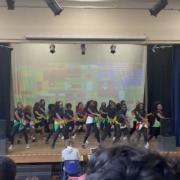
When results day rolled round this year, over 500,000 16 year olds were awarded their GCSEs without ever having to do the exams, handed certificates adorned with a combination of predicted and ‘calculated’ grades. But what do you do if you have neither? For Alyssa Erulin, who was home-schooled from the age of five, this was the predicament she found herself in.
When GCSEs were cancelled at the end of March and schools had to close, a sense of panic, uncertainty and then, eventually, relief set in for the majority of year 11s. Little was clear at the outset - or even significantly later - but like many, Alyssa was quite excited by this ‘momentous thing’. It felt historically significant, and, after the initial shock had subsided, what will probably be the longest summer of our lives commenced.
In the six months that followed the closures of schools, it was established that GCSE grades would be based on mock grades and teacher predictions, finalised by the regulator. However, Alyssa hadn’t done any formal mocks and, taught by her mum, was outside the school system. With no predictions, and no information from the exam boards, Alyssa spent months in limbo, torn between joining everyone else in the year in doing next to nothing, or, despite the uncertainty and temptations, retaining some regard for her future.
In the end, Alyssa admits she didn’t do very much about it. It was ‘so uncertain’, and everyone else’s were properly cancelled. Nevertheless, she had ‘a great summer’ doing things she enjoyed - arguably some necessary respite.
However, September was just as momentous as March - if not more so. At the end of August it became clear that she would have to do her exams across the autumn and winter, along with those doing resits. While she is in the midst of doing everything from maths and biology to ancient history and RS, she only knows people doing re-doing English or maths.
Not only that, but for the first time since she’d attended a nursery in Guadeloupe, she has enrolled in school, in order to do her A-levels. Studying English literature, media and psychology at Loxford School, it was certainly an adjustment to make, but she says she ‘enjoyed it so much.’ ‘It helped,’ she says, ‘ that everyone was so friendly’. She enjoys the class room set up (despite the Covid restrictions) and finds it easier to stay focused. Nevertheless her life has changed, and become a balancing act. Afterall, doing GCSEs on top of A-levels isn’t a situation you’d normally expect to find yourself in.
Alyssa confesses that the workload is ‘too much’, but consoles herself with the fact that it’s not for too long. Revision on top of homework isn’t easy, and her rigidly timetabled half term reflected this, Nevertheless, her self control and discipline is admirable. Her only GCSE so far - French, which she took in year 9 - is testimony to her dedication. The 9, ‘a nice surprise’, was a just reward for her hard work.
She loves her subjects, both GCSE and A-level, which probably helps. Whilst she finds RS easiest, ancient history is ‘so interesting’, despite being a bit niche! It also has the most content out of all her subjects. She tries to balance all the revision, and ‘wants to stay on top of it all’.
Alyssa has now done almost half of her GCSEs , with the final two subjects in January. ‘I can’t imagine how I’ll feel when exams are over,’ she says, ‘so, so relieved’. With such strenuous demands on her, she makes our predicted grades really look like a cop-out.






























